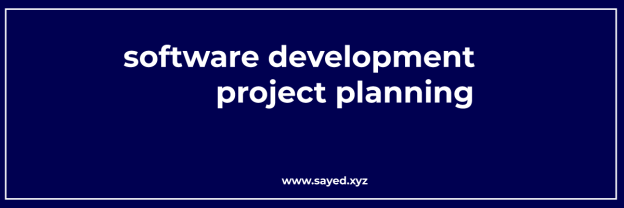As a software developer, what are the information sources I can use to keep myself updated about new tools and trends?
As a software developer, it’s important to stay updated on new tools and trends in the industry.
However, I can suggest some popular websites and resources that many software developers use to stay updated on new tools and trends in the industry. You can easily find these websites by searching for their names in your preferred search engine or by typing the URLs directly into your browser. Here are some trusted sources:
Here are some information sources and strategies you can use to keep yourself informed:
01. Online Resources:
i) Technology News Websites:
Websites like TechCrunch, Wired, Ars Technica, and The Verge regularly cover the latest trends and tools in the tech world.
TechCrunch (https://techcrunch.com/): TechCrunch covers a wide range of technology-related news, including new tools, startups, and trends.
Hacker News (https://news.ycombinator.com/): Hacker News is a community-driven site where developers and tech enthusiasts discuss and share the latest developments in the tech world.
ii) Blogs:
Follow tech blogs and personal development blogs of experts in your field. Many developers share their insights, experiences, and updates on new tools through blogs.
Medium (https://medium.com/): Medium has many tech-related publications and blogs where developers share their insights and knowledge on new tools and trends.
Stack Overflow Blog (https://stackoverflow.blog/): Stack Overflow’s blog often features articles on programming trends and developer surveys.
iii) Developer Forums:
Participate in developer forums like Stack Overflow, Reddit’s programming subreddits (such as r/programming and r/webdev), and specialized forums related to your areas of interest.
iv) Social Media:
Follow tech influencers, industry experts, and relevant hashtags on Twitter, LinkedIn, and other social media platforms to get real-time updates and discussions on trending topics.
v) YouTube:
Subscribe to tech channels and developers on YouTube for video tutorials, coding demonstrations, and tech news.
i) Traversy Media (https://www.youtube.com/user/TechGuyWeb): Brad Traversy’s channel offers tutorials on web development and programming.
ii) The Net Ninja (https://www.youtube.com/channel/UCW5YeuERMmlnqo4oq8vwUpg): Provides tutorials on web development and JavaScript.
iii) Sentdex (https://www.youtube.com/user/sentdex): Focuses on machine learning and Python development.
02. Podcasts:
There are many podcasts dedicated to software development and technology trends. You can listen to these podcasts during your commute or while working to stay informed.
i) “Software Engineering Daily” (https://softwareengineeringdaily.com/): Covers a wide range of software engineering topics.
ii) “The Changelog” (https://changelog.com/): Discusses open-source software, tools, and communities.
03. Online Courses and MOOCs:
Platforms like Coursera, edX, Udacity, and Pluralsight offer courses on a wide range of tech topics. Enroll in courses that interest you to learn about the latest tools and technologies.
LinkedIn Learning (https://www.linkedin.com/learning/): Offers a variety of tech courses and tutorials on new tools and technologies.
04. Books:
Books authored by industry experts often provide in-depth knowledge on specific tools, programming languages, and development methodologies. Keep an eye out for newly released books in your field.
05. Attend Conferences and Meetups:
Tech conferences, meetups, and workshops are great opportunities to learn about new tools and trends firsthand. These events often feature keynote speakers and breakout sessions on cutting-edge topics.
06. GitHub and GitLab:
Explore open-source projects on platforms like GitHub and GitLab. This is a great way to discover new tools and libraries that developers are actively working on.
GitHub Trending (https://github.com/trending): GitHub’s trending section displays popular repositories and projects from various programming languages and frameworks.
07. Tech Company Blogs:
Major tech companies like Google, Microsoft, Apple, and Amazon have blogs where they announce updates to their tools and services. Subscribe to these blogs to stay updated on their latest offerings.
08. Professional Networks:
Join professional networks and organizations related to your field. These networks often host events, webinars, and newsletters with valuable information about industry trends.
09. Newsletters:
Subscribe to newsletters that curate and deliver tech news and updates directly to your inbox. Examples include Hacker Newsletter, JavaScript Weekly, and Python Weekly.
10. Online Communities:
Participate in online communities like GitHub Discussions, Dev.to, and Hashnode, where developers share their knowledge, ask questions, and discuss trends.
InfoQ (https://www.infoq.com/): InfoQ covers emerging software development trends and practices, including articles, videos, and presentations.
Smashing Magazine (https://www.smashingmagazine.com/): Smashing Magazine focuses on web development and design, offering articles and tutorials on current trends.
Dev.to (https://dev.to/): Dev.to is a community platform where developers write articles and share insights about programming and tech trends.
11. Experiment and Build:
Don’t forget to experiment with new tools and technologies by building personal projects or contributing to open-source projects. Hands-on experience is one of the best ways to learn and stay updated.
12. Reddit Programming Communities:
i) r/programming (https://www.reddit.com/r/programming/): A subreddit for general programming discussions.
ii) r/webdev (https://www.reddit.com/r/webdev/): Focuses on web development topics and trends.
iii) r/learnprogramming (https://www.reddit.com/r/learnprogramming/): Useful for beginners and those looking to learn new programming skills.
By utilizing a combination of these information sources and staying curious and engaged in the developer community, you can effectively keep yourself updated about new tools and trends in the ever-evolving field of software development.
Please note that the landscape of technology resources is vast, and it’s a good idea to explore different sources to find the ones that best suit your interests and needs as a software developer.

